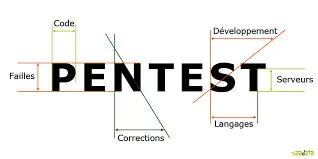Top AI-Driven Pentest Tools 2025: Your Guide to Smarter, Continuous Security

PenligentAI · 6, August 2025
Why AI-Powered Penetration Testing Matters
- End-to-end automation: From asset discovery and vulnerability scanning to attack simulation and compliance reporting — all fully automated.
- Advanced attack chaining: AI can understand context, perform intelligent prompt planning, simulate exploit paths, and conduct fuzzing automatically.
- Seamless CI/CD & compliance integration: Tools can generate reports aligned with SOC 2, ISO 27001, PCI-DSS, and other regulatory frameworks.

Top AI Pentesting Tools to Watch in 2025
Penligent.ai
Touted as the first end-to-end AI-driven penetration testing platform, Penligent.ai blends classic tools like Nmap, Metasploit, Burp Suite, and SQLmap into a unified, intelligent AI workflow (source).
- Full-spectrum workflow: From asset mapping to exploit execution, attack chain simulation, and automated report generation.
- Multi-agent orchestration: Supports distributed execution with intelligent task scheduling and high concurrency.
- Zero deployment: Cross-platform (Windows/macOS/Linux) with natural language control.
- Multilingual support: Generates audit-ready reports in Chinese and English (ISO, PCI-DSS, NIST, etc.).
Mindgard
Mindgard focuses on AI model security, specializing in identifying prompt injection, input manipulation, and toolchain vulnerabilities in LLM applications — ideal for GenAI environments (source).
PentestGPT
An open-source, community-led project that delivers a structured, full-chain pentesting workflow. Suitable for beginners and automation-heavy environments (source).
XBOW
An AI-powered multi-agent framework optimized for parallel vulnerability discovery. It claims to have uncovered thousands of real-world vulnerabilities and is suited for high-speed, high-scale testing (source).
Pentera (Pcysys)
An enterprise-grade automated attack validation platform. Offers continuous risk assessment, especially within LDAP/Active Directory environments. Designed for large teams and long-term offensive security management (source).
RidgeBot (Ridge Security)
Focuses on internal and external asset security. Automates exploit simulation, path visualization, and risk scoring. Designed for traditional enterprise security environments (source).
NodeZero (Horizon3.ai)
A SaaS-based continuous pentest platform for hybrid environments. Features honeypot triggers, zero-day risk alerts, and real-time visibility into attack surfaces (source).

Comparison Table
| Tool | Use Case | Strengths | Considerations |
|---|---|---|---|
| Penligent.ai | End-to-end AI pentesting | Multi-agent, full lifecycle, natural language UI | Still maturing, compatibility testing advised |
| Mindgard | LLM and GenAI security | Purpose-built for AI model risks | Limited to AI security, not traditional pentests |
| PentestGPT | Open-source automation | Community-driven, clear workflow | Performance depends on LLM quality |
| XBOW | Fast-scale testing | High-concurrency agent system | Cost and resource-intensive for large scans |
| Pentera | Enterprise attack validation | Continuous testing, compliance-ready | Best for large-scale environments |
| RidgeBot | Asset-focused testing | Visual exploit paths, risk scoring | Traditional enterprise deployment |
| NodeZero | Hybrid cloud/internal testing | Zero-day awareness, honeypot detection | SaaS delivery model — cloud trust needed |
Deployment Strategies & Tool Selection Tips
- Initial sweep: Start with Penligent.ai, AutoSecT, or PentestGPT for quick asset discovery and basic vulnerability scanning.
- Chained attack simulations: Use Penligent.ai for dynamic attack chaining or Mindgard for LLM prompt injection detection.
- Compliance-ready reporting: Penligent.ai and Pentera are well-suited for generating ISO/NIST audit reports and integrating with DevSecOps pipelines.
- Team size & budget:
Enterprises: Consider Pentera or NodeZero for long-term attack surface management.
Startups/dev teams: Penligent.ai and PentestGPT offer cost-effective entry points with minimal setup.
Key Trends to Watch
- Agent-based pentesting is becoming standard: Multi-agent systems like Penligent.ai, XBOW, and Runner handle coordinated attack workflows autonomously.
- LLM security testing is on the rise: Tools like Mindgard and PentestGPT are purpose-built for evaluating GenAI/LLM system vulnerabilities.
- Compliance is a top priority: The ability to auto-generate SOC 2, ISO 27001, and NIST-ready reports is increasingly a deal-breaker for enterprise adoption.
Final Thoughts
2025 marks the mainstream adoption of AI-powered penetration testing. Tools like Penligent.ai, Mindgard, PentestGPT, XBOW, Pentera, and NodeZero cover the full spectrum — from automated workflows and AI-specific threats to enterprise-level compliance.
Among these, Penligent.ai stands out as the first true end-to-end AI pentest agent, offering a natural language interface, intelligent attack path planning, and real-time compliance-ready outputs.
As always, we recommend combining these AI tools with human review and red team validation. If you’re looking for tailored integration plans or real-world deployment examples — feel free to reach out.
Relevant Resources